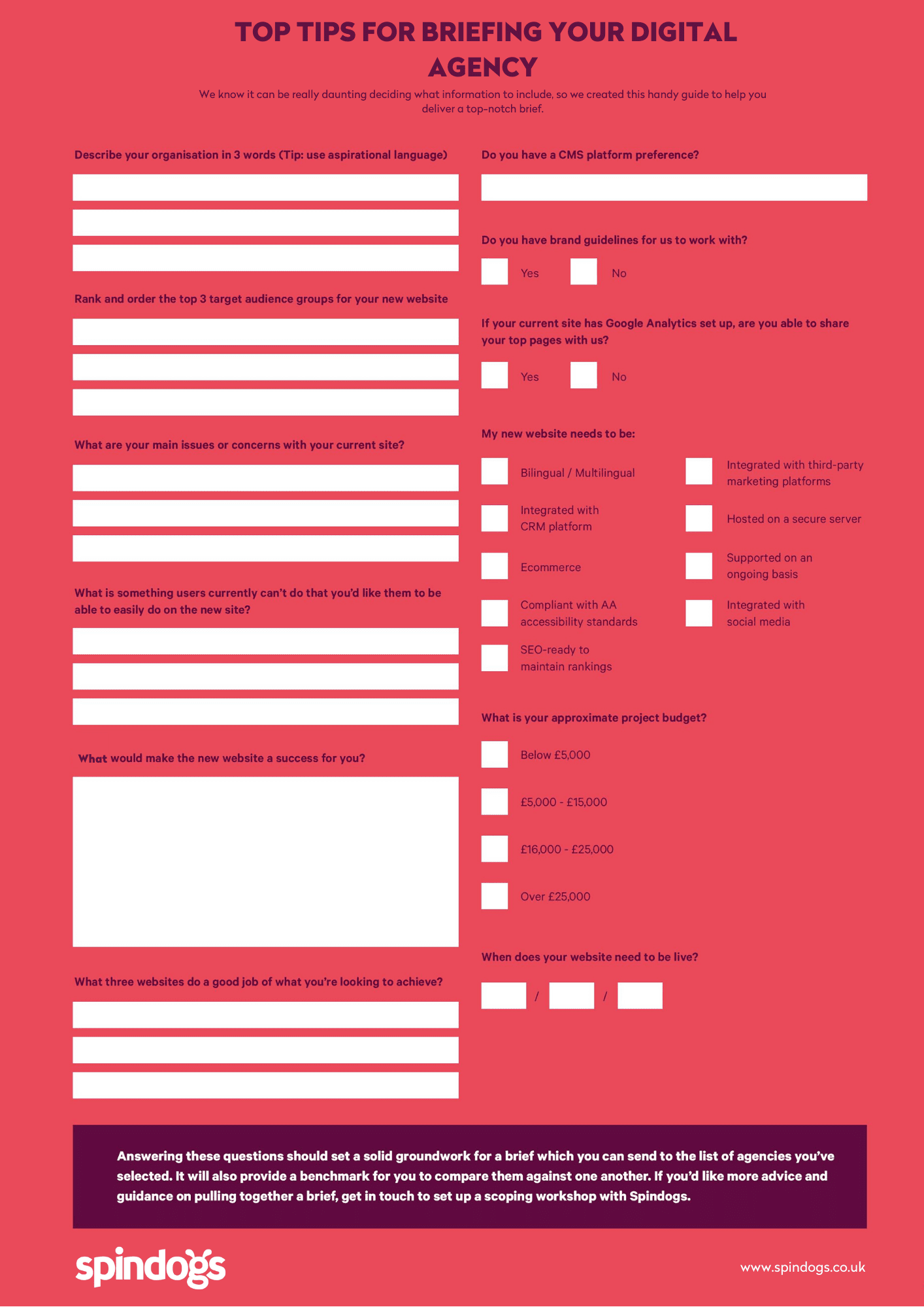The process of briefing an agency on a new website project can be a really exciting time. Perhaps your current dated, uninspiring site is getting no conversions and isn’t fulfilling its potential? Or you might have a new business that you can’t wait to show the world? Whatever the case, you may be tempted to skip a few steps and jump straight to asking, ‘How much is this going to cost?’. To help you pull together a brief with all the information both you and your agency need to know, we chatted with Senior Account Manager Luke Cardy to find out his top tips.
Here’s what Luke said and also why you should ask some other questions first:
When starting any new website project, it is really beneficial to everyone involved to have a clear brief. This doesn’t always mean compiling a 50-page document which induces an information overload. Instead, consider the key functionality and page types that your new website needs to fulfil the requirements of all users. Deciding on what information to include and what not include can be overwhelming so we created this handy guide and top tips to help you along the way.
1. Agree on your brand before you start the web project
It can be tempting to let a new website influence the visual identity of your brand, but considering brand first always results in a more engaging outcome.
2. Review the content on your current site and choose what to keep and lose
This can be a really useful exercise, using Google Analytics and other free tools. However, its important to consider if getting rid of large amounts of content will impact your SEO. Also consider whether you’d need help to populate the new site with content once the key page types have been designed and built.
3. Create a sitemap of all the pages you’ll need
You can avoid surprises such as missing pages or content further down the line by mapping out your pages and how they will be accessed on the site up-front. (We can help you refine this later on!)
4. Don’t rush the web project just to get something new live
Allow yourself enough time so you don’t have to rush the project. We’d suggest a minimum of ten weeks for a website project, but this could be longer depending on your requirements.
5. Do your homework on the agencies submitting their proposals
- Have they worked on similar projects?
- Ask them to share case studies, costs, timescales, as well as their project process and team information.
If it seems too good to be true, it just might be! If one agency is significantly cheaper or promising an extremely quick turnaround on your project, double check that they have fully understood all of your requirements before you give the go ahead. We know it can be really daunting deciding what information to include, so we created this handy guide to help you deliver a top-notch brief:

Needing a little more help with your brief, not to worry get in touch to speak with Luke and see how we can help you create a top notch-brief and a successful project.